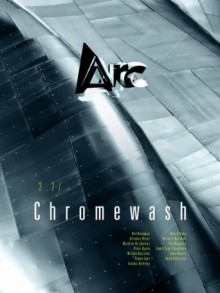The second volume of Arc continues with an issue that wants to peel back the futuristic shine. So we bettered ourselves, had us a couple of revolutions - agricultural, industrial - and then before we knew it our inventions had raised the seas and fried the atmosphere, reshuffled our knowledge and...
show more
The second volume of Arc continues with an issue that wants to peel back the futuristic shine. So we bettered ourselves, had us a couple of revolutions - agricultural, industrial - and then before we knew it our inventions had raised the seas and fried the atmosphere, reshuffled our knowledge and commodified our pleasures; they even stole our privacy. Our lives are good, but not fair at all - and signs are we’re coming to a stormy end. Our masters tell us they’ll figure things out. With predictions and scenarios, models and forecasts, they’ll find a way through the coming storms and shortages. But what if they can’t? What if it’s all moonshine, and they’re just slapping on chromewash to cover their panic and powerlessness? In Chromewash original stories scratch and scuff the oh-so-shiny prediction business. Ned Beauman plays the markets, Jane Rogers puts a market price on identity, Tim Maughan games the art market, and Matthew De Abaitua wonders what happens when creatives get destructive. Also in this issue, Joanna Kavenna learns to mistrust Al Gore’s first-person plural, and M. John Harrison examines the special weapons and tactics of English Heritage. Medical ethicist Peter Hajek’s modest proposal tackles an ageing planet; Adam Rothstein spins a ghost story out of vapourware; Marek Kohn decides that the past has a future, too; and Brendan Byrne recalls the moment modern statecraft went cyberpunk.
show less

